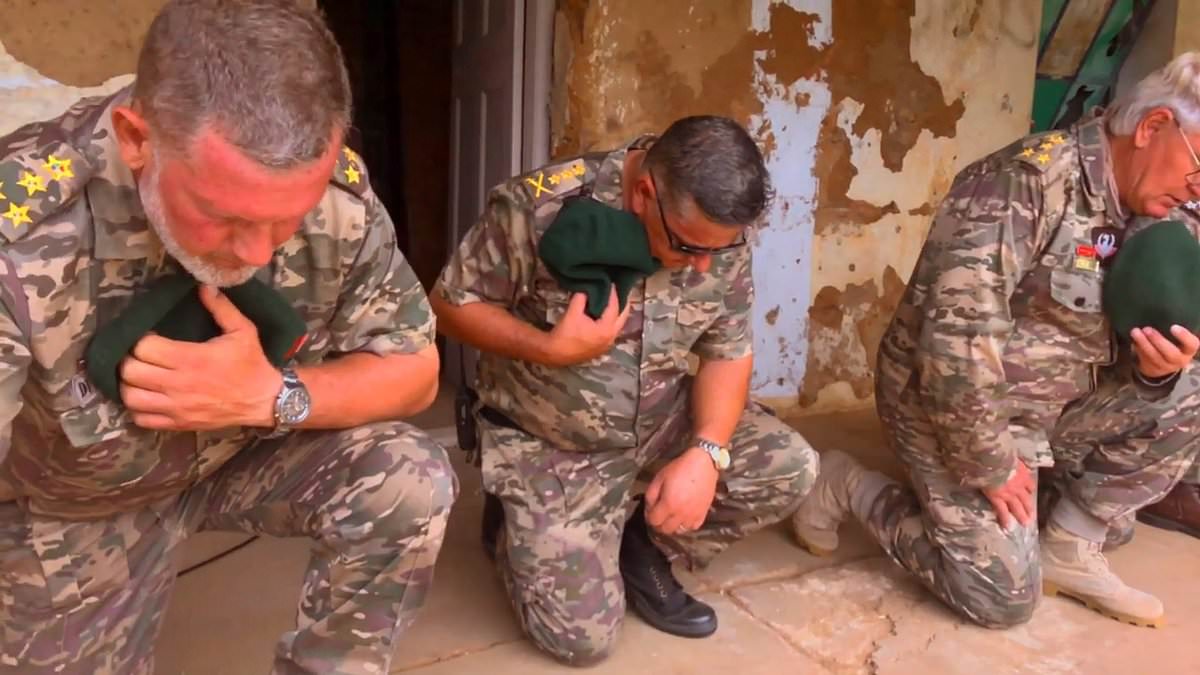White genocide in South Africa ‘is clearly imagined and not real’, the country’s high court has ruled.
The ruling has declared a bequest by Grantland Michael Bray to far-right organisation Boerelegioen (BL), which says it is ‘a civil defence movement that enables citizens to resist the promised slaughter of whites’, invalid.
Bray, who died in 2022, had set aside £1.7million (R40m) in his will to fund training programmes by the BL which he believed would ‘exterminate every black person in South Africa’.
He became paranoid about violent attacks on the white minority after BL engaged in ‘fearmongering’ to convince people that murders of white farmers signified the start of a white genocide, Judge Rosheni Allie said in court.
A white genocide threat ‘is clearly imagined and not real’, according to the judgement seen by the Times.
The ruling, handed down on February 15, came just a week after US President Donald Trump cut all aid to South Africa due to alleged human rights violations against the white minority.
Trump’s claims echo those of his tech billionaire advisor Elon Musk, who was born in Pretoria, South Africa, and said in 2023 that authorities in the capital city were anti-white.
Musk even claimed that officials encouraged the killing of white people, who represent seven per cent of the population in South Africa.
But crime statistics don’t support these claims, as the most recent data, from 2023, revealed that 49 farmers or their families were killed, which makes up just 0.18 per cent of the 27,000 murders recorded in the South Africa during that period.
Trump’s executive order earlier this month to halt assistance came in response to a new law in South Africa that gives the government powers in some instances to expropriate land from people.
The White House said the law ‘blatantly discriminates against ethnic minority Afrikaners’.
The Expropriation Act was signed into law by South African President Cyril Ramaphosa last month and allows the government to take land in specific instances where it is not being used, or where it would be in the public interest if it is redistributed.
It aims to address some of the wrongs of South Africa’s racist apartheid era, when Black people had land taken away from them and were forced to live in areas designated for non-white citizens.
South Africa’s white population – which includes Afrikaners, the descendants of mainly Dutch-colonial settlers – amounts to roughly seven per cent of the country’s total population.
More than 30 years after the end of apartheid, this demographic still owns some 72 per cent of the country’s private farmland, according to government data.
The White House has said that Trump is going to announce a program to resettle white South African farmers and their families as refugees, proposals many South Africans have hit back at as unfeasible.
Bray, who willed £1.7million to BL to fight what he perceived to be white genocide, was a racist with a personality disorder and believed a white genocide was imminent, his sister Madeleine Gerntholtz reportedly said.
He had been paralysed at 26 years old after an accident during his compulsory military service under the apartheid government.
His carers warned Bray that he was being manipulated by senior BL figures who visited him in 2020 and 2021 to give him a BL flag and beret.
Bray allegedly believed he was paying a monthly membership fee to BL and was a member, but his siblings said this wasn’t true as the organisation’s manifesto states that only those of ‘Boer’ blood could be members.
His bequest to BL was ruled invalid as the group’s manifesto, videos and other materials glorified the apartheid government, which goes against South Africa’s constitution, according to the judge.
Bray also wanted to use the money to fund paramilitary and vigilante training programmes, which is illegal.
Judge Allie further said that Bray’s will was vague about which specific BL organisation he wanted to support with the £1.7million.
Boerelegioen RSA (Pty) Ltd and the Boerelegioen NPC said after the application to have Bray’s donation in the will declared invalid that even if the donor wanted his money to be used to kill black people, they had no ambition to do so.
The money earmarked to be donated to BL will now instead by distributed through intestate succession.
It comes after Musk took aim at South African political leaders and condemned what he called the country’s ‘openly racist’ policies in a series of posts on X.
The tech tycoon used his platform to blast Julius Malema, who leads the communist Economic Freedom Fighters (EFF) party, labelling him a ‘genocidal lunatic’ as he shared an old video clip in which the politician can be heard telling a crowd to ‘cut the throat of whiteness’.
Musk, who grew up under white rule in South Africa until he finished school in the late 1980s and left for Canada, additionally called for ‘immediate sanctions’ on Malema and for him to be branded ‘an international criminal’ over his ‘Kill the Boer’ chanting in the clip.
The chant, which refers to white farmers, is rooted in the anti-apartheid struggle and has been defended by rights campaigners as a metaphor rather than a call for ethnic violence.
However, in recent years Musk and many other commentators have labelled it as incitement to attacks on the country’s white minority.
Musk previously shared the clip of Malema, which was filmed at a EFF rally and is several years old, back in 2023, writing on Twitter at the time: ‘They are openly pushing for genocide of white people in South Africa.’
Firebrand Malema, who founded and leads the militant party which advocates for radical land ownership reforms, hit back at Musk at the time calling him ‘illiterate’ and saying ‘the only thing that protects him is his white skin.’
